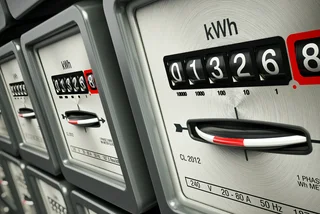According to the Czech Heating Association, heating prices are set to rise in most of Czechia next year, affecting hundreds of thousands of households across the country. District heating costs will increase by 10 to 30 percent in some cities, primarily due to higher taxes and the cancellation of existing state subsidies.
The price hikes are expected to be announced by major cities in the coming days and weeks, with the verdict of the Energy Regulatory Office – which sets an illustrative price point – awaited Thursday.
Price depends on location
Generally, municipalities in which prices are cheaper than the national average will see higher price hikes, while expensive ones may conversely experience slight decreases, news site Lidovky.cz writes. The final price will depend upon the distribution fees paid for by different regions.
Cities such as Prague, České Budějovice, Liberec, Pardubice, Hradec Králové, and Olomouc are expected to announce their prices in the coming weeks – with price hikes anticipated in all. Brno is set to get a price decrease.
Why are prices going up?
Several factors contribute to the rising prices, including the increase in value-added tax (VAT) on heat from 10 to 12 percent for heat starting in January. This change alone will add an extra hundreds of crowns per year to the heating costs of all district-heated households. The specific situation and fuel sources of each heating plant also impact the price development.
According to statistics, households paid an average of CZK 970 per gigajoule for heat in January – 40 percent more than a year earlier. The average person – assuming standard energy consumption under the most common tariff – will pay around CZK 24,000 for electricity in 2024.
Another reason for increased heating costs is the government’s decision to cancel subsidies and financial contributions for energy in 2024 (such as for renewable energy sources). Prime Minister Petr Fiala emphasized that taxpayers can no longer subsidize energy prices next year in the same manner for budget-related reasons. Last year and 2023 had seen a government-imposed cap on both electricity and gas prices.
He expects the impact of this change on households and businesses to be manageable, partially offset by electricity providers’ falling prices.
In summary, heating prices in the Czech Republic are set to increase next year due to increased distribution fees, affecting households across the country. The rise is primarily driven by taxes, the cancellation of subsidies, and the increase in value-added tax.
While some cities may experience decreases or modest price hikes, others will face significant increases. The specific situation of each heating plant – such as where it gets its fuel from – contributes to the price development.












 Reading time: 2 minutes
Reading time: 2 minutes 



 English
English
 German
German
 French
French
 Italian
Italian





















